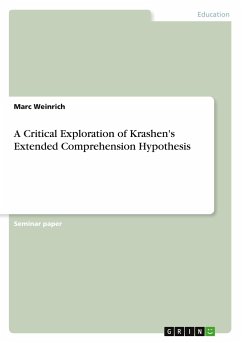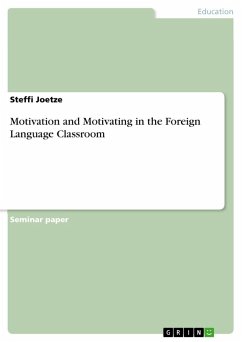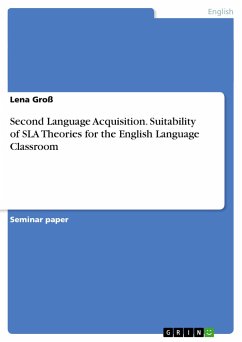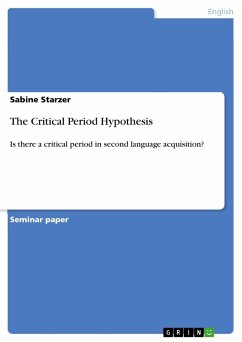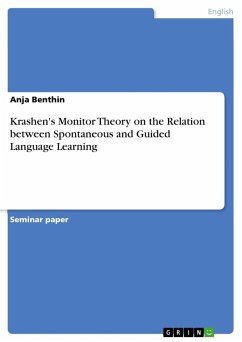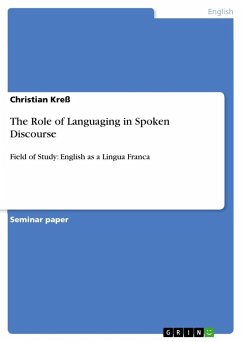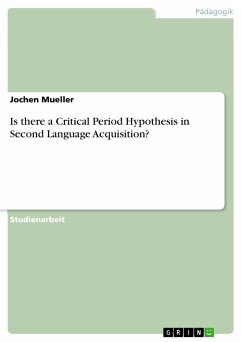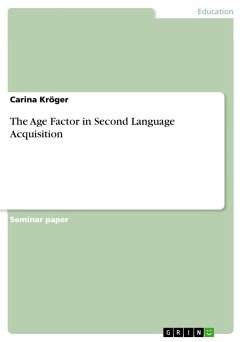Seminar paper from the year 2009 in the subject Didactics - English - Pedagogy, Literature Studies, grade: 1,0, University of Hildesheim (Institut für englische Sprache und ihre Literatur), course: Language Acquisition, language: English, abstract: Stephen Krashen has been one of the most influential contemporary linguists in the field of second language acquisition (SLA). He became well-known on account of various concepts that he created such as the Acquisition-Learning Hypothesis, the Monitor Hypothesis, the Affective Filter Hypothesis, the Input Hypothesis and the Natural Order Hypothesis. These concepts play an important role in the study of second language acquisition, but they are also seen as somewhat controversial in the field of SLA. At the beginning of 2009, an article was published in which Krashen expands upon his own Input Hypothesis, also known as the Comprehension Hypothesis. A critical look will be taken at Krashen's statements in which the Comprehension Hypothesis will be explored and opposing theories and approaches will be discussed. There will also be a focus on what can be inferred from the Comprehension Hypothesis and the discussion of this hypothesis. A conclusion will be drawn as to what this means for second language education at school. The goal of this paper is to present the controversy surrounding Krashen's Comprehension Hypothesis by exploring its weaknesses and providing an alternative and critical perspective.

